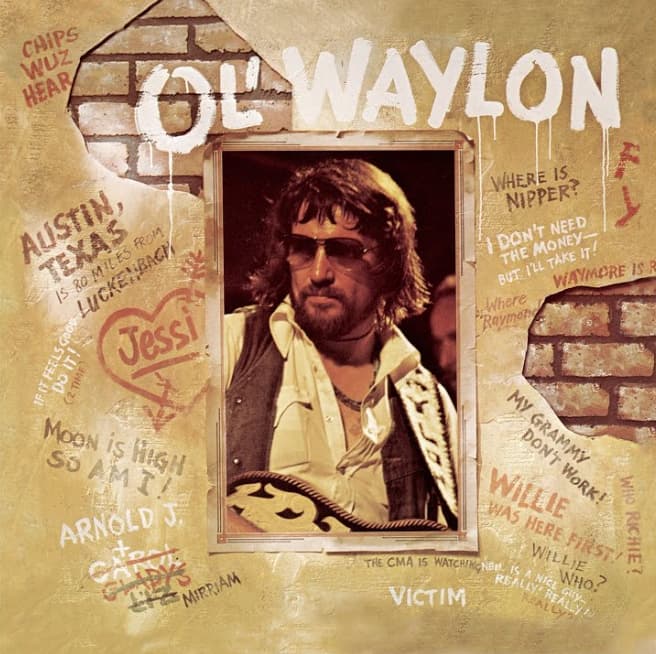
A song that strips life down to its truest essentials and reminds us where the heart feels most at home.
When Waylon Jennings released “Luckenbach, Texas (Back to the Basics of Love)” in 1977, the single quickly became one of the defining moments of his storied career, climbing to No. 1 on the country charts and anchoring the album Ol’ Waylon, which itself became a landmark of the outlaw country era. It arrived at a cultural crossroads: Nashville polish was tightening its grip, yet Waylon stood firm in his rebellion—carving out a sound that blended defiance, tenderness, and a uniquely Texan sense of dusty-road wisdom.
What makes “Luckenbach, Texas” endure, however, is not merely its commercial triumph or even its unmistakable sonic fingerprints—the lazy, loping groove; the conversational baritone; the interplay of guitars that feel as worn and familiar as a denim jacket left on the back of a chair. Its real power lies in how it captures the emotional fatigue of a couple drowning in the trappings of modern success. The song paints its world not with dramatic heartbreak, but with the quiet ache of two people who have wandered too far from the simple joys that once sustained them.
At its core, the track functions as a small, three-minute parable. Its lyrics, penned by Bobby Emmons and Chips Moman, construct a narrative where material comfort becomes a subtle adversary. Not a villain, but a slow erosion—a drift. The couple’s relationship has not fallen apart due to betrayal or tragedy, but due to accumulation: “the finer things in life” that ironically harden the heart instead of softening it. Jennings’ delivery never scolds; instead, he sings as a man who has lived long enough to know that possessions rarely repair what emotional distance has frayed.
The choice of Luckenbach itself—tiny, unassuming, and almost mythic in its small-town simplicity—operates as a symbol as much as a setting. It is less a place you find on a map and more a spiritual checkpoint, a reminder of the unabashed warmth at the center of true companionship. Musically, the song mirrors this philosophy. The arrangement resists extravagance, favoring subtly interwoven acoustic textures and an easy, unhurried tempo that feels like a hand placed gently on the shoulder. Even the famous cameo by Willie Nelson, tucked into the song’s closing moments, is delivered with the same unforced charm.
“Back to the basics” is not a slogan here—it is an invitation. The track encourages listeners to shed the ornamental layers of life and return to the raw timber of love: shared laughter, simple places, unadorned moments. And decades later, each time Waylon’s voice ambles through those opening lines, we are reminded that the search for meaning often leads not forward, but back—to the small towns, the old roads, and the quiet truths that never stopped waiting for us.